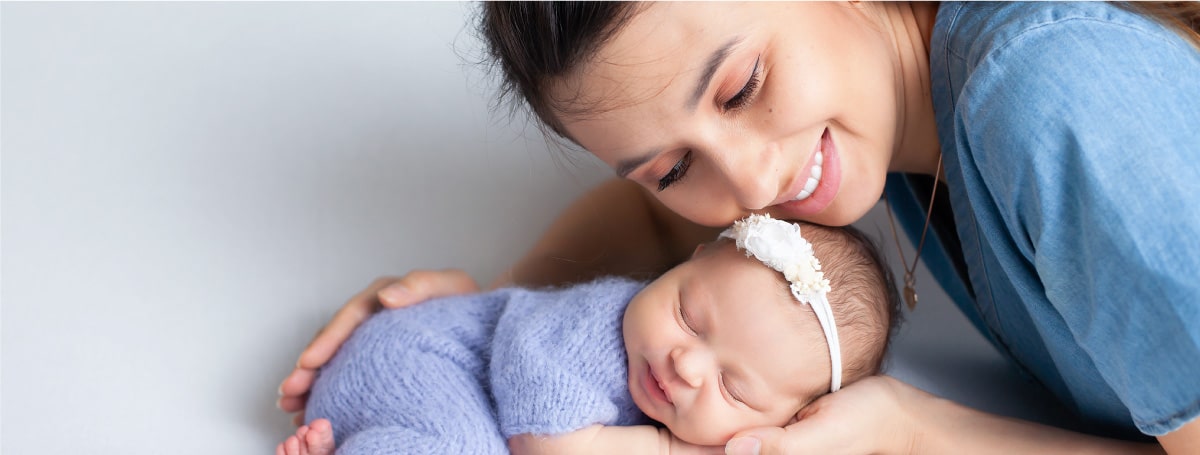Essentials of Postnatal Care for Mother and Baby
For mothers, the period after childbirth is usually spent fussing over their babies. You are caught in a whirlwind of completely foreign activities like changing diapers, checking to see if that baby cream is safe for your little one or just the struggle of trying to put them to sleep. Adjusting to life after pregnancy can be hard and may take a while. But, don’t worry because we will handhold you through it all.
As a new mother, one of your top priorities must be looking after your own health too. We’ll look at some essential postnatal care and their importance in this blog.
Breastfeeding
Breastfeeding is essential to help both mothers and support the growth of their child.
According to the World Health Organization (WHO), breastmilk provides all the necessary nutrients and energy a newborn needs and keeps the mother away from the risk of developing breast cancer, cardiovascular diseases, type 2 diabetes, etc. later in life.
Colostrum, the first milk of a mother, is highly concentrated with antibodies and nutrition to fight any early infections and protect your baby. As you start to breastfeed your baby, you will need to know the following things:
- Check the latch always, if it hurts then your baby is not latching onto the nipple the right way.
- Breastfeed from both the nipples.
- Pump milk before the baby latches on to allow easier let-down.
- Don’t wipe off your nipples after a meal session, let them air-dry. Breastmilk acts as a natural moisturizer and healing agent.
- Massage aching breasts often.
The more you breastfeed the better your baby will get at it. Always let your baby have their fill, shorter feedings will not help with sore nipples and make your baby cranky.
Nutrition
Your body has gone through a great deal of changes during your pregnancy and childbirth, and it needs a lot of time and energy to recover. A balanced and nutritious diet can help you get there sooner.
The weight a mother gains during pregnancy provides them with enough postnatal nutrition for breastfeeding and recovery. However, after childbirth, the mother should continue eating healthy foods including meat, fish, oils, nuts, seeds, cereals, beans and vegetables to sustain herself and the baby.
Personal hygiene of mom and baby
After childbirth, extra care is needed with regards to postnatal hygiene for both mother and child. Your body has already gone through the physical trauma of pushing a baby out the birth canal, and you’re probably exhausted too, we understand. Here are a few things that you should keep in mind while looking after yourself:
- If you have had a vaginal delivery, you need to be extra gentle while wiping down there.
- Always wipe front to back after you’re done doing your business.
- Take warm baths to soothe your body and relieve stress.
- Keep checking for bacterial infections in your stitches if you have had a C-section delivery.
Don’t be ashamed of taking frequent breaks to keep you sane and going. Ask your friends or family members to help or step in for you.
A newborn’s immunity system is still developing and is prone to sickness and infections. You must always:
- Wash your hands every time you hold your baby to keep your baby safe from germs.
- Wipe and clean your breasts and nipples before breastfeeding.
- Change your baby’s diapers regularly to prevent them from getting rashes. Teddyy newborn taped diapers are soft and super-absorbent to keep away rashes and comes with a wetness indictor to know when it’s time to change!
Perineal Injury
A perineal injury can happen during childbirth. Perineum is the area between your genital and anus. A perineal tear might happen when the perineum stretches to allow the newborn’s head and body to pass through, in other cases doctors deliberately make an incision.
A light injury can heal itself, but a severe perineal injury will need a few stitches to heal. It is important to keep the injury and the surrounding area clean to prevent infections and long-term conditions like bowel incontinence.
Pain Relief Management
At each postnatal care visit, a mother should relate her pains and complications and the doctor can advise her on the next course of action. For most mothers, paracetamol should suffice as a pain reliever. For serious internal and external injuries, your doctor can prescribe medications.
Bladder Care
Pregnancy and childbirth put tremendous pressure on your bladder and pelvic floor muscles, this can result in involuntary urine leakage or sometimes being unable to urinate at all.
You should be peeing every 2- 3 hours. Things should go back to normal once the pain and swelling from childbirth subsides.
The early days with your newborn are precious, taking care of yourself can help you enjoy them to the fullest. If you are unsure about anything, contact your doctor or just write your concerns in the comments below and we’ll find a solution! Happy motherhood. 🙂




